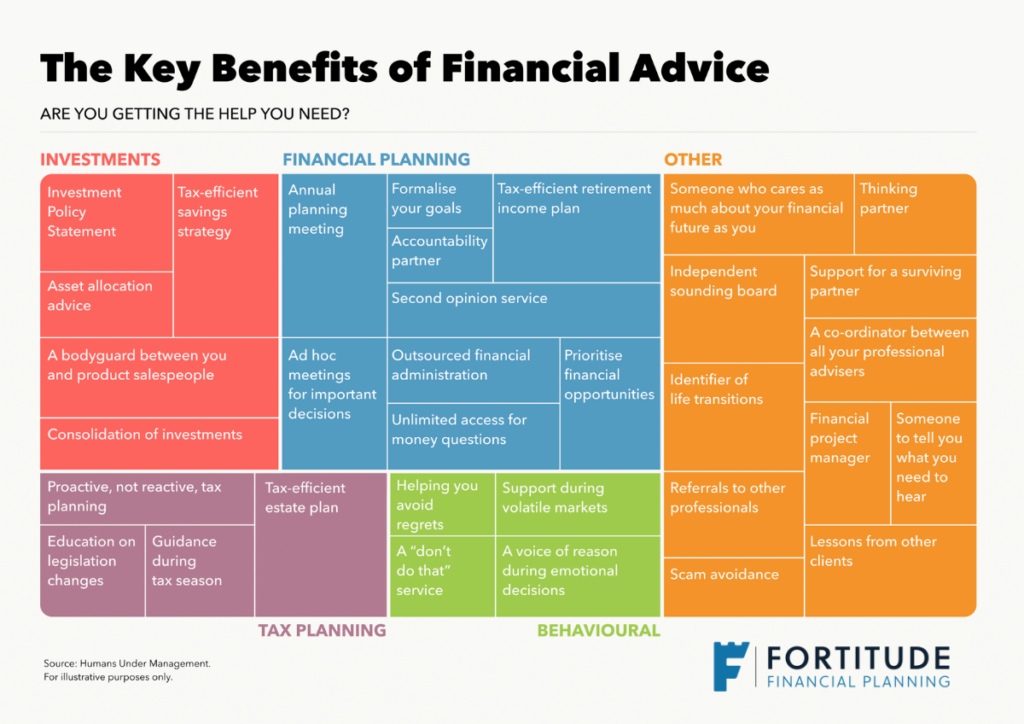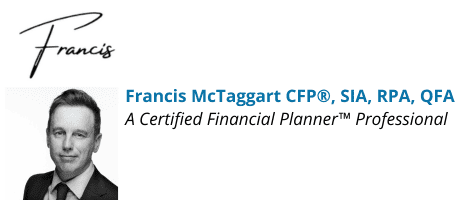6 Financial Planning Steps to Start the New Year
2024 has come and gone.
2025 is here.
Now is the time to make simple financial planning moves to help you get on track and set yourself up for a more financially stable present and future.
Getting your finances organised can be a daunting task, but by taking a few simple steps, it can be easier than you think.
Start the year off right by getting started on the six simple steps listed below.
1) Draft a Monthly Budget
The simplest of all financial planning steps.
A quick win.
Even though this may seem like a common goal, many people find it hard to complete this task each month and stick to it.
A monthly budget is the beginning of gaining better control of your finances, and the more detailed it is, the better.
When creating your budget, make sure that every penny is accounted for, including savings, investments, clothing, food, entertainment, etc.
It will not only help you realise how much you spend each month, but it will also help direct your focus to areas where you can improve and goals you can set for the extra money you may have when sticking to your budget.

Budgeting is not about restricting what you spend (unless you overspend!).
It is about being aware of what you’re spending money on.
Putting you in a position to be able to make changes.
You can even access our free and interactive budget planner by clicking here.
2) Protect your Income
Fact. Your income is our most important asset.
The fuel for your current lifestyle.
Protect it.
Protect it against illness or injury rendering you unable to work.
Trust me, you don’t want to risk it.
3) Take Control of Your Debt
Debt is one of the primary factors that can hold you back from financial success.
Undoubtedly, in particular, crappy debt.
Debt like credit cards, car loans, credit union, and bank loans.
High interest stuff.

Make a plan and commitment to reduce your debt and stick to it.
Start by determining a reasonable amount of debt that you would like to reduce for the year.
Make sure that the goal is attainable.
Next, determine how much you will need to pay and how much you can afford each month in order to reduce your debt by the goal amount.
Finally, you will need to look at your budget and find a way to fit in this amount each month, even if it means cutting back on other areas of the budget.
Commit to it.
It is also important to make sure that you do not add any more debt throughout the year.
4) Make an Emergency Fund a Priority
Medical costs, vehicle repairs, job layoffs, or house maintenance will quickly derail a budget.
Make sure that you have a fund set up specifically to handle these unforeseen expenses.
As a result, you don’t have to alter your monthly budget to accommodate.
A good rule of thumb for an emergency fund is to start with three to six months of after tax income.
Alternatively, try three to six months’ worth of household expenses.
Set aside an amount each month in your budget to add to your emergency fund.
If you need to use it for an emergency during the year, you will need to regrow it.
5) Prioritise Retirement Savings
Saving for retirement is something often put on the back burner until it is too late.
Hence the poor pension coverage in Ireland.
The sooner you begin saving for retirement, the more time it will have to grow, and the better return you will have on your investment.
Compound interest at its best.
We can work with you to determine what retirement savings vehicles may be best for you.
Furthermore, the Government will cover 40% of your contributions (assuming you pay income tax at 40%).
Therefore, if you pay income tax at the higher rate, the Government will cover 40% of your pension contributions.
Unless you want to live on approximately €13,000 per annum when you retire, you need to deal with this now.
6) Create a Long-Term Financial Plan
If you are having difficulty envisioning the rewards that will come with financial stability, goals can be more difficult to set.
Consider any short term goals you may have, like the family holiday, college or school fees.
Then, consider any long-term financial goals you may have, such as buying a house or retiring.

Draft out a plan that includes savings, investing, and other ways to build the wealth you need to achieve these goals.
You can start with smaller goals, so they seem less daunting.
However, fact, having a plan in place will help you stay on track and guide your financial decisions.
Summary
To summarise 5 simple personal finance steps to take.
Simple also, once you commit.
The benefits of which are not just confined to getting your financial house in order.
We have written numerous times, in a world where mental health is consistently under the microscope, a number of studies demonstrate a link between financial worries and mental health.
In fact, the number one cause of stress in America is finances.
It’s so important to look after your finances and take stock.
Take stock of where you are, where you’re going, and where you want to go.
This is as opposed to living money in, money out month to month without any real idea of what is going on.
Working towards the goals above will put you on a sound financial footing for the rest of the year.
How we help
If you would like to discuss the above, schedule a call with us.
We can create a financial plan tailored to you.
This will cover all of the above goals.

We can build in anything you want to, we’ll discuss your requirements, and what you want to consider.
Kids’ college fees. Regular family car upgrade.
Regular family holidays, important experiences.
Or longer term objectives like a comfortable retirement.
We will outline where you are, where you’re going, and what you need to do.
The result, you’ll feel better and more confident.
Get in touch
Email us at info@fortitudefp.ie or click below to schedule an introductory call at our expense.
Why not visit our insights page.
A multitude of information on various financial subjects covering all aspects of saving, investing, financial planning, protection and pension advice.


Our blog posts are intended for information purposes only and should not be interpreted as financial advice.
You should always engage the services of a fully qualified financial planner before entering any financial contract.
To discuss engaging the services of Fortitude Financial Planning please email us at info@fortitudefp.ie.
Fortitude Financial Planning Ltd will not be held responsible for any actions taken as a result of reading these blog posts.


 Production
Production